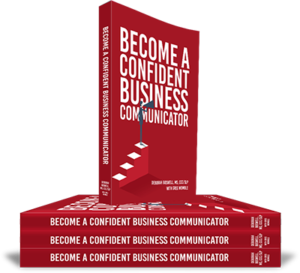Psycholinguist Cynthia Whissell of Laurentian University in Sudbury, Ontario said something simple, but profound, that got me thinking about why, in presentations, some words catch the audience’s attention while others fall flat.
“Sounds have meaning.”
The marketing and branding industries understand that people are attracted to certain sounds. If the sounds within a word get your attention or stick in your mind, you are more likely to interact with the product or service.
A decade ago, Sharon Begley wrote in the Wall Street Journal about the process that branding consultants utilized for technology company Research in Motion to name the newest hand-held wireless prototype. When the experts first observed and touched the device, they noted that the little keys felt like seeds. The first name they correlated with the device was “strawberry.” But Stanford University linguist Will Leben, a member of the branding team, objected, noting that “straw-” is a slow syllable, which was the opposite of the zippy connotation Research In Motion wanted.
But “-berry” was good; research had shown that people associate the b sound with reliability, while the short e evokes speed. Another syllable with a b and a short vowel would nail it—and within seconds the Lexicon team had its fruit: BlackBerry.
While you continue building your vocabulary (a lifelong pursuit for communicators), think about the way words feel in your mouth and how some words evoke more attention than others. Psycholinguist Whissell says that the sounds of l, s and v are associated with pleasant feelings; r, p, t, d and k with unpleasant. Other researchers report that sounds coming to a full stop (p, b, t, d) connote slowness, and f, v, s and z connote speed, with z being the fastest.
How can you utilize this information so that your presentation or your conversation creates more interest?


